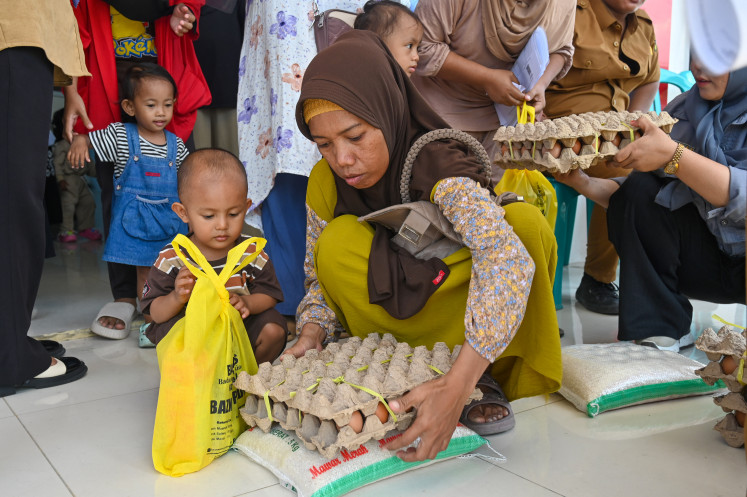Popular Reads
Top Results
Can't find what you're looking for?
View all search resultsPopular Reads
Top Results
Can't find what you're looking for?
View all search resultsOmnibus bill: Breakthrough for agriculture
In agriculture, the bill may make way for two major breakthroughs: a more conducive environment for investments and a more liberalized food trade. There is huge potential for the proposed policies to improve the agriculture sector, but they also come with risks.
Change text size
Gift Premium Articles
to Anyone
T
he food and agriculture industry is one of the most restricted sectors in Indonesia due to the politically sensitive nature of food. Instead of protecting the agricultural sector, protectionist policies have actually hindered much-needed investments and innovations, resulting in the sector’s relative decline.
The agriculture sector’s contribution to Indonesia’s gross domestic product (GDP) has dropped from around 50 percent in the 1960s to just 12.72 percent in 2019, as is typical in the process of strong economic growth. Contributing to that decline is also a lack of investments in agriculture, particularly in research and development, as evidenced by a study from the Asian Development Bank. Most agriculture production still entails traditional, manual labor by smallholder farmers that are outdated, inefficient and expensive.
This may soon change because of the omnibus bill on job creation. The bill, while controversial, promises comprehensive reform that would invite investments and help create jobs across various sectors.
In agriculture, the bill may make way for two major breakthroughs: a more conducive environment for investments and a more liberalized food trade. There is huge potential for the proposed policies to improve the agriculture sector, but they also come with risks.
The first potential major breakthrough in the agriculture sector from the bill is an industry that is more conducive to investments. The bill proposes to revise current regulations that restrict foreign investments or infrastructure in agriculture and welcomes foreign investments and infrastructure. Law No. 13/2010 on horticulture for example, restricts foreign investments just for large-scale businesses and allows only up to 30 percent foreign ownership of seed breeding companies.
The bill, among other things, states that the government encourages investments in the horticulture industry, and the unnecessary prerequisites would be removed.
Likewise, Article 33 of the Horticulture Law also limits the use of foreign horticulture infrastructure and states that at least 30 percent of the infrastructure component must be sourced from domestic production. This is revised in the bill, saying that domestic and/or foreign infrastructure are welcomed in the horticulture industry.

















